| ENRIQUE VILA-MATAS | TEXTOS de VILA-MATAS | ||||||||||
|
|||||||||||
  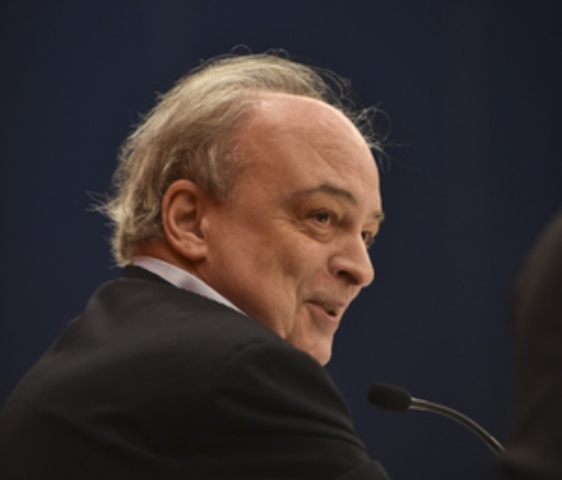 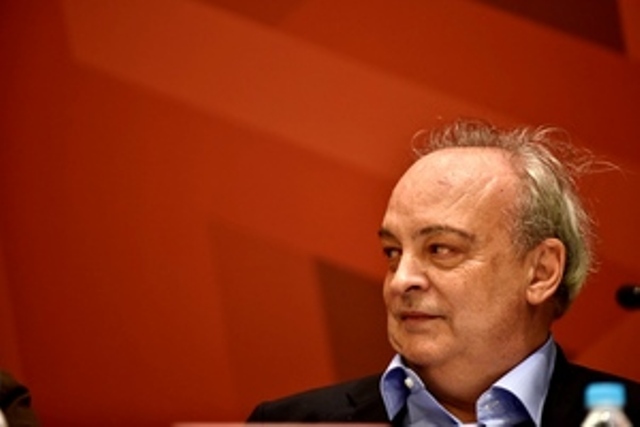 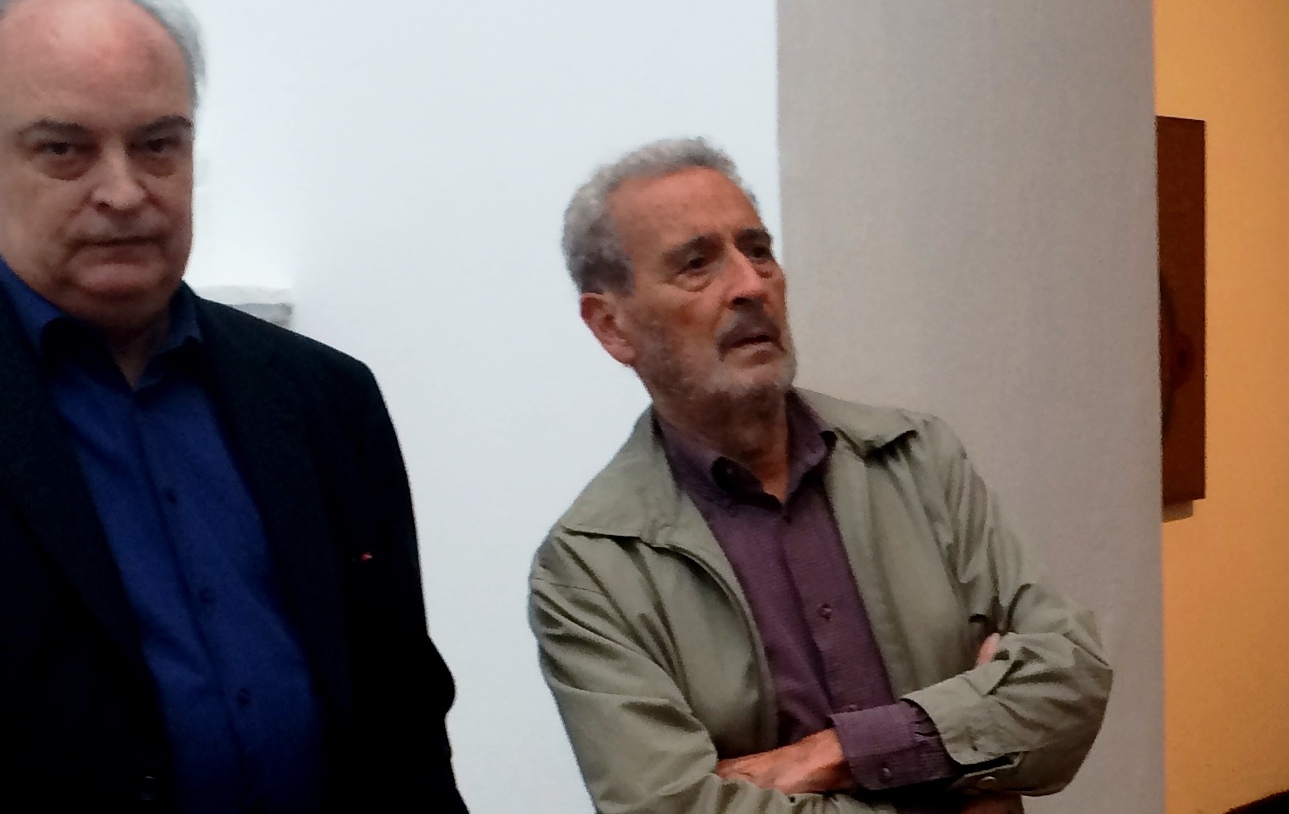 Enrique Vila-Matas y Vicente Rojo 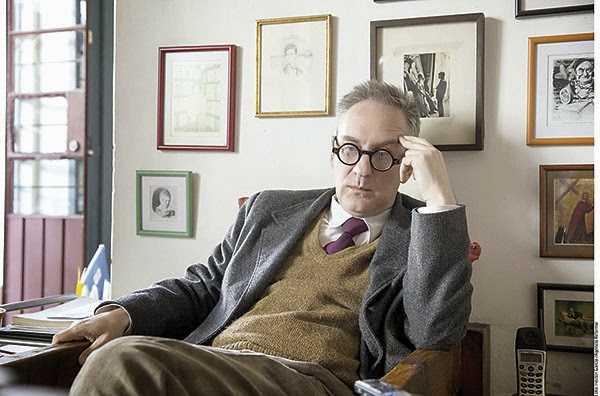 El crítico Christopher Domínguez Michael 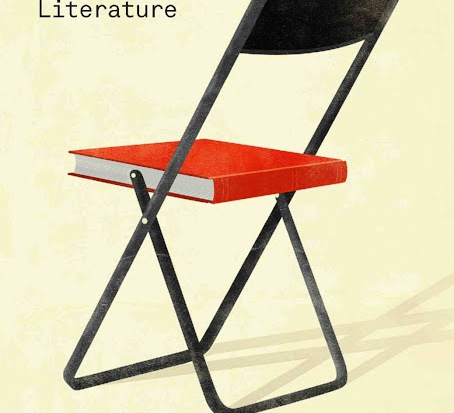 |
THE FUTURE 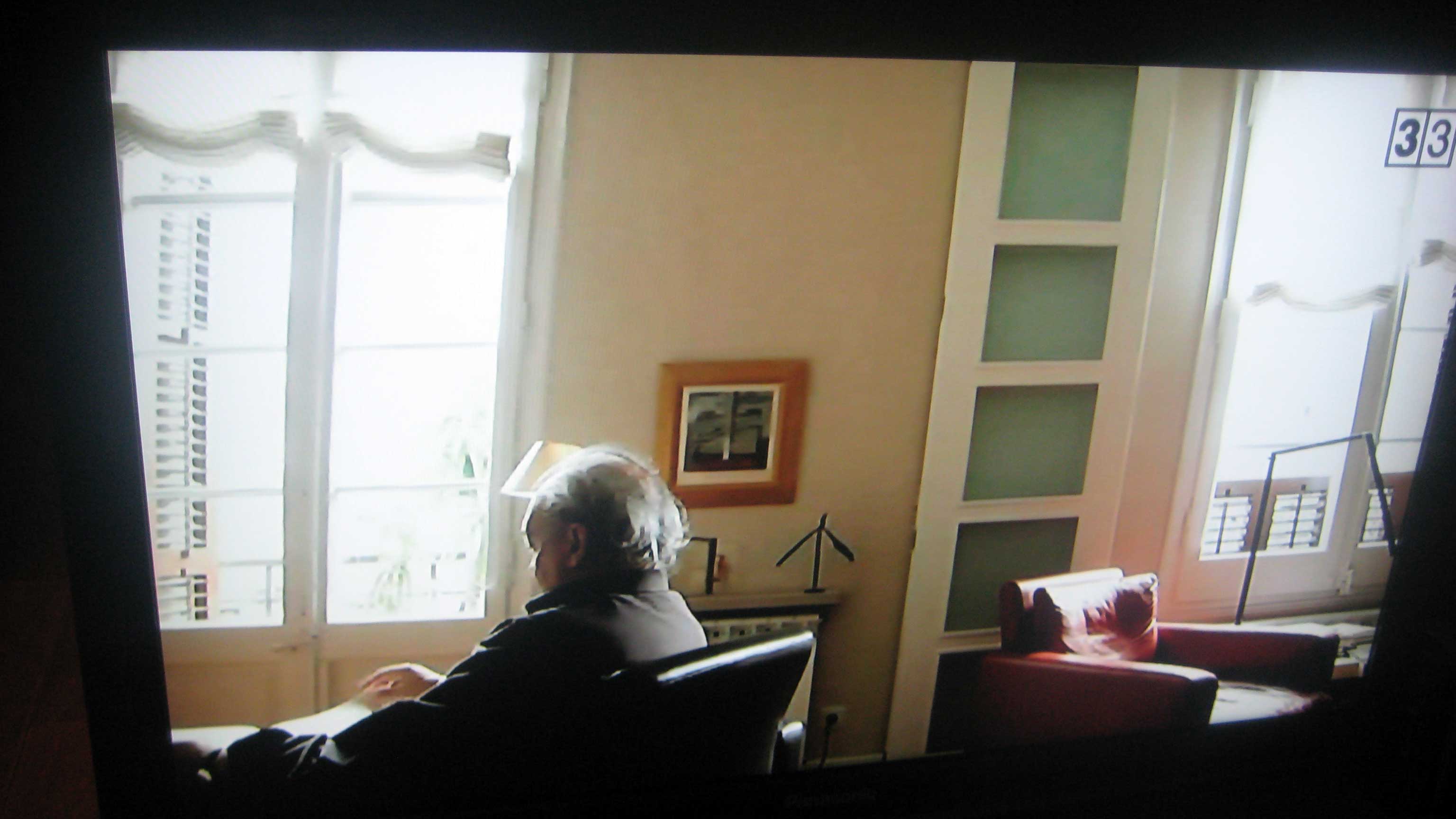 I have come to talk to you about the future. The future of the novel, I suppose, though possibly just the future of this speech. I’m going to describe to you the future as for years I imagined it would be. Put yourselves in 1948, the year I was born, on the August afternoon when music stations in Maryland began to play the sounds of a strange, all but noiseless disc, soon spreading all along the East Coast, leaving a trail of perplexity in anyone who happened to hear them. What was it? Nothing of the kind had ever been heard before, so it still didn’t have a name, but it was—we now know—the first Rock n’ Roll song in history. Whoever heard it was suddenly pitched into the future. The music of that disc seemed to come from the ether and to literally float on the airwaves of Maryland. This, ladies and gentlemen, was the arrival of Rock n’ Roll, and it came with the deep unhurriedness of that which is truly unexpected. The song was called It’s Too Soon to Know, and it was the first recording byThe Orioles, five musicians from Baltimore. It sounded strange—which isn’t so strange, bearing in mind that it was the first sign that something was changing. What thoughts might have crossed the mind of the first person who, hearing Radio Maryland that morning, comprehended that it was the start of a new era? It’s so, went the song, in the halting whispered delivery of singer Sonny Til, it’s too soon, way too soon to know. I have come to talk to you about the future, which was for years something I thought of as arriving in the same way that Rock music arrived in the year I was born, with the deep unhurriedness of that which is truly unexpected. I have come to talk to you about the future. And clearly, seeing as it was me who imposed the subject on myself, I’m looking to make things complicated for myself. Which doesn’t surprise me. This is the way I’ve worked these years, working on difficult books that I take as far as I can, to the limits of what they can be; books that, upon publication, all became dead-end streets, because it was never clear where I could go next. But I did so in full awareness, because this was the point I wanted to get to. Each book I wrote seemed to bring me to the point of giving up writing. They’d come out and I’d be installed in a state of dead-end-streetness, and my friends would ask me the same as always: “What next?” And I thought that everything had ended. I’d have a hard time exiting that dead end. But I was lucky in that, always at the last second, I’d remember that intelligence is the art of knowing how to find a small gap through which to escape the situation that traps us. And I always had the good luck of finding, in the end, the tiniest gap and I would escape, and find my way into a new book. Dead ends have been the central motor of my work. Which is why I’m not surprised to find I’m making things complicated for myself, talking to you about the future. But, oh well. Actually, I’m used to dealing with it, the future. Or am I not a specialist in recounting in advance the journeys I take? It’s altogether my custom to get ahead of what might happen and write about it in newspaper articles. Then I travel to the place and experience there what is written. Seeing as I have this custom of recounting journeys in advance, I wrote this speech before I left Barcelona for Guadalajara. Well, I know it’s obvious that I wrote it before, otherwise I wouldn’t be reading it now. The advantage of this is that I know how it ends, which just goes to show, whatever people may think, the future sometimes isn’t so impossible to decipher. If I forced myself to talk to you about the future it was mainly because this prize, formerly the Premio Juan Rulfo, looks only at the work of writers who “make a significant contribution to contemporary literature” and I wanted it known that I perhaps fit this criterion because I have always written with the necessity of finding writing that would pose strictly contemporary questions of us, with the necessity of finding structures that would not limit themselves to reproducing models already obsolete a hundred years ago. It’s so much my custom to look for new ways of writing that I am now going to talk to you not about how I write, but about how I would like to write. For that I’m going to turn to Robert Walser that Swiss writer once referred to by Christopher Dominguez Michael as “my moral hero.” Walser seems to have felt a real sense of liberation from himself the night he took a balloon ride from Bitterfeld to a beach on the Baltic. A journey over a slumbering night-time Germany. “Three people climb into the basket, the strange house, the anchoring chords are loosed, and the balloon flies slowly upward.” Walser was a saunterer par excellence, a walker in truth born for this noiseless airborne journey since he wanted in all his prose works to take to the air, away from the heaviness of earthly life, to slip gently and quietly into a freer kingdom. I’d like to write taking to the air, away from the heaviness of earthly life. But, then, if I were to do so, would the routes I take overlap with the night flights I suspect the novel will take in the future? At the beginning of this century, I’d still have said so, yes: some journeys would overlap. Maybe I was still an optimist in those days, because I felt myself allied with these lines by Borges: “What will the indecipherable future dream? It will dream that Alonso Quijano can be Don Quixote without leaving his village and his books.” My view then was that in the novels of the future it would no longer be necessary to leave the village for open terrain because thought, rather than action, would begin to take precedence. Believing, naively, in the demands that would be made by readers in the century to come, I thought that in the indecipherable future the nineteenth-century novel—whose best work already seemed to me to have been done—would begin to give way to the narrative essay, or essayistic narratives, and might even allow for the arrival of a murky, compact kind of prose, like Sebald’s (that is, altogether like Nietzsche’s way of life, literature), or like Sergio Pitol’s, the Sergio Pitol of The Magician of Vienna, the kind of compact prose with which the author would dissolve genre boundaries, making all waymarkers disappear and turning texts into fragments joined together by a perfectly unified structure: a prose that is not just spare but naked, the prose of the new century. I thought this century would see the arrival of a kind of novel already quite happily occupying the borderlands: a novel that would have no problem mixing autobiography and essay, travel and diary accounts, and pure fiction—the reality that is brought to the text as such. I thought we’d be moving towards a literature in keeping with the spirit of the times, a compound literature, one in which the limits would not be clear and reality would be able to dance at the frontier with fiction, and the rhythm would blur this frontier. In 2001 I asked Roberto Bolaño in an interview in Chile what the future of the novel held. And Bolaño literally said the kind of novel based on plots and storylines, a format already pretty well-known—not now, but in the nineteenth century—had had its day. “People will carry on doing it and, what is more, for a long time to come,” said Bolaño. “But this kind of novel has had its day, and not because I say so, its time is just long gone. The Invention of Morel made this kind of novel just not viable any more—the kind of novel held together by plot. The kind of novel without structure, or play, or competing voices.” In terms of the kind of fiction I believed to be on the horizon, one of my reference points was the anti-artist Marcel Duchamp. Not an artist, but an anti-artist, as he’d say of himself. More than once, turning my thoughts to the lasting impact of his work, I suspected that not only would we leave behind stiff retrograde fiction, but we’d move towards a conceptual novel: a kind of novel that would take up where Marcel Duchamp left off in terms of a reconciliation of art and life, the made thing and the spectator. I had in mind Octavio Paz’s words on this reconciliation as Duchamp proposed it: “Art when it merges with life is socialized art—not social art or socialist art—and still less an activity that leads to the production of beautiful or simply decorative objects. By art merged with life we mean a poem by Mallarmé or a novel by Joyce: the most difficult art. The kind of art that forces the spectator and the reader to become an artist and a poet.” I believed that this difficult art would come and that we would see spectators and readers evolve into artists and poets. And I believed that books would emerge in which form and content were one and the same thing. Books that people might complain seemed written in a foreign language—people to whom we could say: but this isn’t actually a written thing, it hasn’t been written to be read, or not only to be read; it’s been created to be looked at and listened to; and look, this person’s writing isn’t about anything, it is a thing. In the moments when it signifies sleep, the words go to sleep. When dance, the words dance. Novelists engender discursive works when they set about to talk about things, a subject, while true art does nothing of the sort: true art is the thing and not something that refers to other things: it’s not art about something, it is in itself art. This is why I prefer Bouvard and Pécuchet and Finnegans Wake, Flaubert’s and Joyce’s imperfect works which came after the masterpieces of Madame Bovary and Ulysses, respectively. I saw in these uncontrolled and imperfect works the way forward, wonderful ways into the future. I thought we’d all evolve into artists and poets, but things took a different course and, in the shadows of Grey, now the kind of book that’s in the ascendancy—always so limited—are ones with that obtuse inclination for ‘the cinematographic parade of things,’ to say nothing of the kind of book we brag about having read ‘in one sitting,’ all that. The shortening of attention spans have been abetted by a publishing industry that is eradicating from literature anything they want to make us believe is too boring, or too meaningful, or that might come across as intellectual. And the outlook, from a literary point of view—if such a point of view still exists—is bleak. “And why is it that writers, more than other people, are susceptible to depression?” someone asks in a Mario Levrero story. And someone else says: “They become depressed because they can’t tolerate the idea of living in a world that has been ruined by stupid people.” In a world where the number of readers is terrifyingly small, a writer has a lot to do just to survive. They’re harder and harder to find, but there are still some—we could call them “the writers of the old days”—who manage because they even know how to arrange themselves so as to discuss writing what they would write if they were to write. But they’re an increasingly rare breed. They have survived a kind of extinction, and they are complicated types, people of a courage as old as courage itself, crazy people—deranged, if you like—people who are in their essence obsessive, fascinatingly obsessive. A woman at a symposium asked a friend of mine who’s a writer when he was going to stop writing about characters who seem to inhabit the Wild West and who go around killing false writers: “When I get it right, I’ll stop,” he said. Persistence, mad persistence, counts for a great deal in art—the presence of a maniac behind the piece. The writer-survivors know the future won’t come over the airwaves; it won’t, as it did in the year of my birth, take the cheerful shape of a new kind of music. My biography moves from the birth of Rock ‘n’ Roll to the attacks in Paris in November this year. In an intense piece of writing by Xavier Person, which I read on the airplane yesterday, I was able to fall in behind George Didi-Huberman at the moment he opened a door to a Paris hospital ward, and with him I entered the room occupied by Simon, a young man of 33 who suffered a very serious spinal injury when a bullet from a Kalashnikov entered his body in the Charlie Hebdo attacks. This survivor, Didi-Huberman tells us, is in that room “working to stay alive.” His body is slowly starting to move and he is trying to get up, to literally rise, to be a person again. That French hospital room led me to think on the refugees from the war in Syria who, having risked their lives, step foot on a Mediterranean island, standing, rising slowly up, also to feel they are people again. And thinking of them I heard the echo of the voices that speak to us in Svetlana Alexievitch Chernobyl document. The book isn’t so much about the catastrophe itself as the world after this catastrophe. It talks about the way in which people adapt to the new reality. The reality that has already come to pass, the reality that, though it is already here, amongst us, whispers the tragic chorus, hasn’t yet been fully discerned. And now you will forgive me, but the voices of Chernobyl, the great chorus, speak the future. Mexico, November 28, 2015
Translated by Thomas Bunstead Enrique Vila-Matas is one of the great European storytellers. Translated into thirty-seven languages, he has won numerous international literary prizes, including the FIL Award in 2015, and been longlisted and shortlisted for the Independent Foreign Fiction Prize. His most recent publications in English are Because She Never Asked and Illogic of Kassel. Vampire in Love, a collection of his short fiction, is forthcoming from New Directions in fall 2016. |
||||||||||
|
|||||||||||
| www.enriquevilamatas.com | |||||||||||